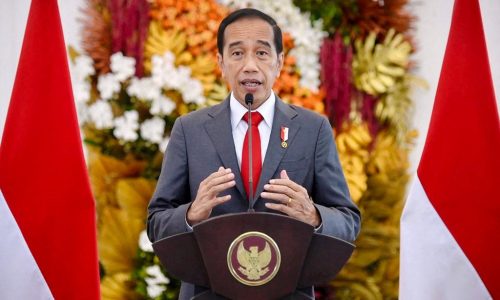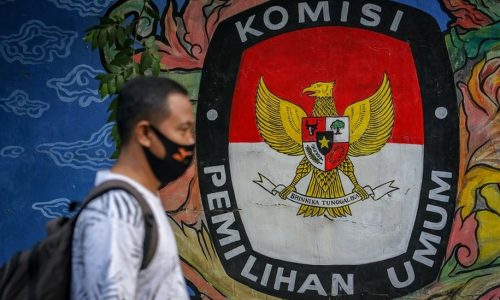DBS Bank of Singapore and UK-based bank Standard Chartered have withdrawn from financing PT Adaro Minerals Indonesia’s US$ 2 billion aluminum smelter project due to the use of dirty energy.
Adaro Minerals, a subsidiary of Adaro Energy, is raising funds to finance its smelter in the Indonesia Green Industrial Estate, North Kalimantan. The company has dubbed the project as a flagship green, renewable development for the country although it involves building a 2.2GW coal power plant, Financial Times reported on February 7, 2023.
One of the bank executives said that Adaro discussed the financing of the smelter with the bank, but the latter said that the bank has stopped coal-related businesses.
Adaro Head of Corporate Communication said that the smelter project had secured commitments from several banks and had planned to sign financial close at the first semester of 2023. However, several global banks have stated that they would not finance new coal-fired power plants.
Climate commitment
“The rejection from banks and investors to finance Adaro’s smelter project showed that financial institutions can no longer involve in the coal-related project due to their climate commitment,” Nabila Gunawan, Indonesian campaigner of climate organization Market Forces, said in a statement on February 13, 2023.
“Promoting the smelter as green assets is a greenwashing practice. Based on Adaro’s statement, the smelter will rely on new coal-fired power plant for its early phase. By exercising greenwashing practice, Adaro’s seriousness in green transition is questionable,” she said.
Greenwashing is a term in which a company’s marketing and communication strategy is to build environmentally friendly image despite the fact that coal is dirty energy.
In November 2022, South Koran company Hyundai signed a Memorandum of Understanding to buy aluminum from Adaro. Hyundai said that even though the company was looking for stable aluminum supply, the MoU is not binding.
Hyundai plans to use the aluminum from the smelter to produce electric car and describe the smelter as green and low carbon because it will be powered by hydro power plant from Kayan river. Based on the plan and project timeline, the hydro energy will be available in 2029. Hyundai said it would purchase Adaro’s aluminum production in the early phase.
“If Hyundai is serious on their carbon neutrality principle, purchasing aluminum from coal-powered smelter is a failure to show their commitment,” said Ginanjar Ariyasuta, campaigner of 350.org.
Smelter project
Adaro Minerals, through its subsidiary PT Adaro Indo Aluminum, plans to develop an aluminum smelter at the Kalimantan Industrial Park Indonesia (KIPI) with US$ 1.1 billion in investment to built a first phase of aluminum smelter with the capacity of 500,000 ton/year and a jetty. The first phase of the smelter will commercially operate in 2025.
The company President Director Christian Ariano Rachmat said Adaro was considering various potential financial sources, including the combination of bank loans and equity. Currently, the company has secured soft commitment from foreign and domestic banks to participate in financing the projects. “On the source of fund , we have plan to combine bank loans, foreign and domestic banks and our own equity,” he said.
The smelter will be developed on a 16,000 hectares Green Industrial Estate. The estate consists of PT Kalimantan Industrial Park Indonesia (KIPI) with 11,500 hectares land and PT Kawasan Industri Kalimantan Indonesia (KIKI) with 4,700 hectares land.
Currently, KIPI is constructing the basic infrastructures such as management building, road access, drainages and other supporting facilities and preparation for the construction of aluminum smelters and petrochemical tenants like land clearing, cut and fill and the construction of jetty.
Meanwhile, KIKI is applying for permits and converting the Right to Cultivate (HGU) land permits of oil palm plantation into industrial estate.
Both industrial estates are exploring and communicating with potential investors. Several industries including petrochemical and aluminum smelters have stated their commitment to be tenants at KIPI and they have started pre-construction activities on the field.
Rachmat said that beside its strategic location, the industrial estates have been supported by good access and infrastructures potentials. The government fully supports the Green Industrial Estates development because it will be a transformation leap for the country from non green economy to green economy. “This is purely private sector project and there is no state and state official ownership in the project,” he added.









